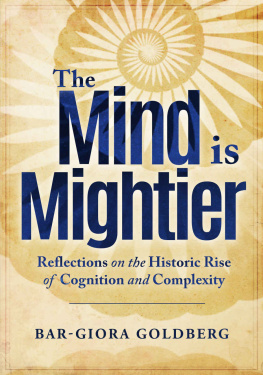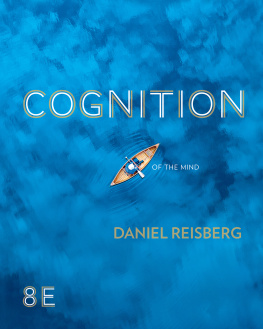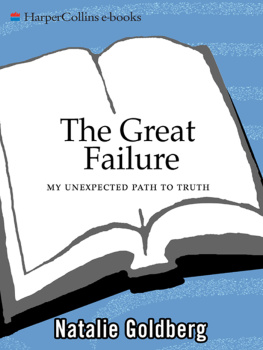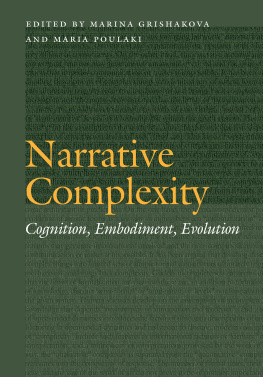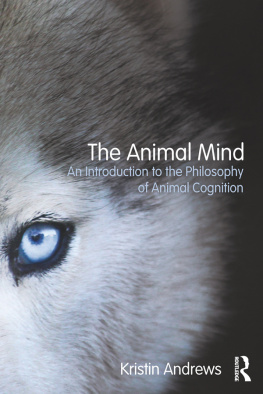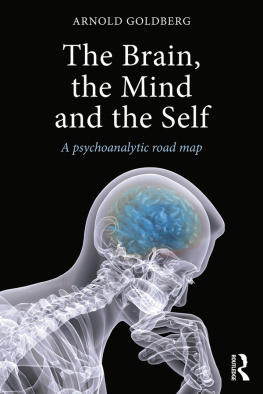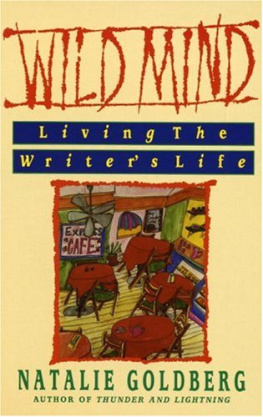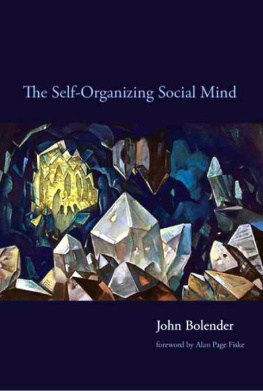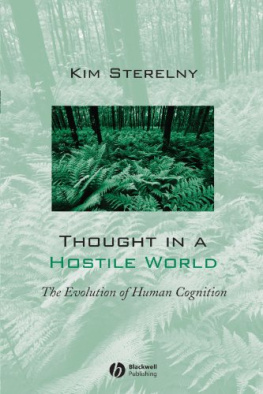Bar-Giora Goldberg - The Mind is Mightier: Reflections on the Historic Rise of Cognition and Complexity
Here you can read online Bar-Giora Goldberg - The Mind is Mightier: Reflections on the Historic Rise of Cognition and Complexity full text of the book (entire story) in english for free. Download pdf and epub, get meaning, cover and reviews about this ebook. year: 2020, publisher: Authors Place Press, genre: Religion. Description of the work, (preface) as well as reviews are available. Best literature library LitArk.com created for fans of good reading and offers a wide selection of genres:
Romance novel
Science fiction
Adventure
Detective
Science
History
Home and family
Prose
Art
Politics
Computer
Non-fiction
Religion
Business
Children
Humor
Choose a favorite category and find really read worthwhile books. Enjoy immersion in the world of imagination, feel the emotions of the characters or learn something new for yourself, make an fascinating discovery.
- Book:The Mind is Mightier: Reflections on the Historic Rise of Cognition and Complexity
- Author:
- Publisher:Authors Place Press
- Genre:
- Year:2020
- Rating:4 / 5
- Favourites:Add to favourites
- Your mark:
- 80
- 1
- 2
- 3
- 4
- 5
The Mind is Mightier: Reflections on the Historic Rise of Cognition and Complexity: summary, description and annotation
We offer to read an annotation, description, summary or preface (depends on what the author of the book "The Mind is Mightier: Reflections on the Historic Rise of Cognition and Complexity" wrote himself). If you haven't found the necessary information about the book — write in the comments, we will try to find it.
Bar-Giora Goldberg: author's other books
Who wrote The Mind is Mightier: Reflections on the Historic Rise of Cognition and Complexity? Find out the surname, the name of the author of the book and a list of all author's works by series.
The Mind is Mightier: Reflections on the Historic Rise of Cognition and Complexity — read online for free the complete book (whole text) full work
Below is the text of the book, divided by pages. System saving the place of the last page read, allows you to conveniently read the book "The Mind is Mightier: Reflections on the Historic Rise of Cognition and Complexity" online for free, without having to search again every time where you left off. Put a bookmark, and you can go to the page where you finished reading at any time.
Font size:
Interval:
Bookmark:

Published by Authors Place Press
9885 Wyecliff Drive, Suite 200
Highlands Ranch, CO 80126
AuthorsPlace.com
Copyright 2019 by Bar-Giora Goldberg
All Rights Reserved
No part of this book may be reproduced or transmitted in any form by any means: graphic, electronic, or mechanical, including photocopying, recording, taping or by any information storage or retrieval system without permission, in writing, from the authors, except for the inclusion of brief quotations in a review, article, book, or academic paper. The authors and publisher of this book and the associated materials have used their best efforts in preparing this material. The authors and publisher make no representations or warranties with respect to accuracy, applicability, fitness or completeness of the contents of this material. They disclaim any warranties expressed or implied, merchantability, or fitness for any particular purpose. The authors and publisher shall in no event be held liable for any loss or other damages, including but not limited to special, incidental, consequential, or other damages. If you have any questions or concerns, the advice of a competent professional should be sought.
Manufactured in the United States of America.
ISBN: - - 62865 - -
Dedicated to Pnina, Amit, Dror, Ronen, Avalyn, Gracyn and Declan
And to the memory of Moshe and Shoshana
Contents
1. Preface
We are all in the gutter, but some of us are looking at the stars.
Oscar Wilde
L ife is a gigantic my stery and while we are starting to decipher few of the secrets, we find out that the path is leading to rising complexity and the cognization of our lives, sciences, technologies and arts.
This reflective historical study, representing mostly western thought, is a set of observations, perhaps a conjecture on the swift evolution of cognition and complexity in human history; a review of our languages, ontologies, the forces that drive us to scientific and artistic heights and the make-believe mythologies and biases we adapted on the path we have taken so far into the cognitive, artistic, scientific, social and political dimensions. History is our mirror and guide, a vast chronicle and ontological canvas that is not neutral and must therefore be interpreted every generation anew.
Animals are born to survive, but humans evolved to explore, learn, create, reflect, ponder and understand. We are here to be inquisitive, curious - a thinking species. In time, our knowledge reveals the world and human affairs to be immensely complex ; it seems that complexity is a feature of the universe and of the phenomena of life. As we progress, we find out that by opening new vistas in our understanding or describing the world, we enter new and higher complex models. This seems to be a destination, an endless path of continuous rising cognition and complexity.
The rise of complexity and the centrality of cognition in our modern world-view, define the fundamental drivers, intellectual progress, advances and affluence of western societies. These cognitive developments, the outcome of our high language and the abstract and symbolically oriented world-view, coupled with the rapid advances in the science of computers - especially Machine-Learning, AI and Biology (specifically in genetics) are by now quite progressive. They have created the potential to approach soon and maybe tinker with some of the fundamental building blocks of the nature of life and its differentiation from inanimate matter, issues that could not have been pondered even a few decades ago. This capacity is possible due to our ability to analyze and model complex scientific, social, political and abstract conditions. Also, to comprehend myriad of spiritual disciplines, mythologies, symbolism, changes in our world-view, advanced communications and the rapid rise of thinking machines. We are absolutely in the age of Idea, Data and Cognition.
However, in-spite of our advanced capabilities and fantastic cognitive progress, we have never learnt to tame the beast within us. With knowledge came the realization of the matters we do not know and the others that are perhaps unknowable. Our body and mind still command most of what we do - as automata! We act and behave without knowing how, why or for what purpose. Our grasp of lifes riddles is largely limited. Many fundamental lifes enigmas may forever stay in the realm of philosophy. Steven Weinberg, winner of the Nobel prize in Physics, stated: The more the universe seems comprehensible, the more it seems pointless . Life that is pointless, without purpose, is a great challenge to the human mind. We seek purpose in a universe brimming with secrets. Among our many riddles is the nature of the mind and consciousness, the origins of our language, the correlation between matter and spirit, lifes purpose or direction and our destiny, or purpose.
Few principles are guiding our modern perception of life and complexity. Material Darwinism defines lifes drive only in survival and success in the reproduction of genetic copies . But then, it seems that life in its marvelous branching and diversity has also evolved towards higher complexity - from Cyano-bacteria (the Photosynthesis pioneers) to Dinosaurs and then mammals; this manifestation of complexity allowed in time human evolution, with our cognition. The mind, consciousness, complexity and cognition have not yet been incorporated into Darwinism, a fact that even Darwin recognized and agonized over. It is our Cognition that has taken us well beyond the boundaries of material natural-selection and farther towards symbolism and abstraction. Human evolution is no more strictly Darwinian; there might be a struggle for respect, or recognition, for position in the social order, even a continuous slow genetic change; but Darwinian survival is receding as a force in the evolution of humanity. Our progress is now definitely directed, motivated and accelerating on the cognitive path. Our brains conquered brute force. The Mind Is Mightier.
We have evolved from the early dominating belief of Gods hand in every matter, into better understanding of nature, history and ourselves. Religion is an important component of the human affair, but its interpretation changed in modernity, perhaps towards a more complex, abstract forms - the philosophical God.
There is no doubt that language, our cognitive cradle, has grown in complexity over time and become richer in its expressive, nuance and descriptive-communicative power. The lingual ability allowed us to imagine, to speculate, to build imagined worlds. Indeed, we dwell in universes we mostly produce, part of our mythologies, imagination and make belief.
The books focus is indeed the rise of cognitive complexity across the apace of our intellectual activity. There is no doubt that the human brain, in size and wiring complexity, has grown beyond proportion to other creatures. The physical resources our brains demand and the burden of a heavy organ, held high by an erected ape, are very taxing but have paid off. We are feeble creatures in comparison and cant compare in muscle, strength or speed to apes or large cats, but our cognition, language and social assembly gave us the advantage to take dominion over the earth. Biologists tell us that success depends on adaptation to a niche; we defy the odds, we adapt to every niche because of our cognitive capacities.
The evolution of our civilizations, only a few thousand years since the agricultural revolution, has not been uniform. Historical records tell us that, while certain human societies enjoyed a rapid rise in Cognition and complexity - Mesopotamia, Egypt, ancient Greece, Greco-Roman, the Renaissance among them - they were usually followed by decline: the Barbarians, the Plagues, the Dark Middle-Ages, Fascism, among them. We are capable of reaching the summit but tend also to take great steps backwards. We are good students of history but fail to learn its lessons. The horrors of the 20 th century, when we hoped to be enlightened after the scientific revolution and the promise of the Enlightenment, will never be forgotten. Our knowledge is cumulative, we have learned to record our progress. Thus, even after the Barbarians visit us, as they do from time to time, we learn to recover. The past continues to beckon and eventually helps direct and enable us to return and surpass what has been achieved in the days of yore. And knowledge easily multiplies, one person can teach many! Education is our salvation.
Font size:
Interval:
Bookmark:
Similar books «The Mind is Mightier: Reflections on the Historic Rise of Cognition and Complexity»
Look at similar books to The Mind is Mightier: Reflections on the Historic Rise of Cognition and Complexity. We have selected literature similar in name and meaning in the hope of providing readers with more options to find new, interesting, not yet read works.
Discussion, reviews of the book The Mind is Mightier: Reflections on the Historic Rise of Cognition and Complexity and just readers' own opinions. Leave your comments, write what you think about the work, its meaning or the main characters. Specify what exactly you liked and what you didn't like, and why you think so.

